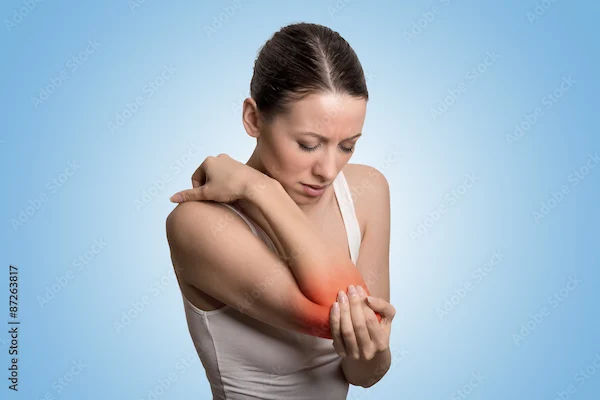Best Medicines for Knee Pain in Seniors
Discover the best medicines for knee pain in seniors, from OTC painkillers to prescription treatments and injections. Learn safe, effective options for lasting relief.

Written by Dr. J T Hema Pratima
Reviewed by Dr. Dhankecha Mayank Dineshbhai MBBS
Last updated on 13th Jan, 2026

Knee pain is a common issue among seniors, often caused by conditions like osteoarthritis, rheumatoid arthritis, or general wear and tear. While lifestyle changes and physical therapy can help, medications often play a crucial role in managing pain and improving mobility. If you or a loved one is struggling with knee pain, knowing the best treatment options can make a big difference.
In this article, we’ll discuss the most effective medicines for knee pain in seniors, their benefits, possible side effects, and when to consult a doctor.
Common Causes of Knee Pain in Seniors
Before discussing medications, it’s important to understand why knee pain occurs in older adults:
1. Osteoarthritis (OA) – The most common cause, where the cartilage in the knee wears down over time.
2. Rheumatoid Arthritis (RA) – An autoimmune condition causing joint inflammation.
3. Gout – A type of arthritis caused by uric acid buildup.
4. Bursitis – Inflammation of the fluid-filled sacs (bursae) around the knee.
5. Tendinitis – Inflammation of the tendons around the knee.
Best Medicines for Knee Pain
1. Over-the-Counter (OTC) Pain Relievers
These are often the first line of treatment for mild to moderate knee pain:
Acetaminophen (Paracetamol) – Helps with pain but does not reduce inflammation. Safe for most people but should be taken cautiously by those with liver problems.
Non-Steroidal Anti-Inflammatory Drugs (NSAIDs) – Such as ibuprofen (Advil, Motrin) and naproxen (Aleve). These reduce both pain and inflammation but may cause stomach issues or kidney problems with long-term use.
Tip: Always take NSAIDs with food to protect your stomach.
2. Topical Pain Relievers
For those who prefer not to take oral medications, creams and gels can be effective:
Diclofenac Gel (Voltaren Gel) – An NSAID gel that reduces pain and swelling.
Capsaicin Cream – Made from chili peppers, it helps by blocking pain signals.
Menthol-Based Creams (Bengay, Icy Hot) – Provide a cooling or warming sensation to ease discomfort.
Tip: Wash your hands after applying topical medications to avoid irritation.
3. Prescription NSAIDs
If OTC options aren’t enough, doctors may prescribe stronger NSAIDs like:
Celecoxib (Celebrex) – A COX-2 inhibitor that reduces inflammation with fewer stomach risks.
Meloxicam (Mobic) – A long-acting NSAID taken once daily.
Caution: Long-term use of NSAIDs may increase heart risks, so always follow your doctor’s advice.
4. Corticosteroid Injections
For severe inflammation, doctors may recommend steroid injections directly into the knee joint. These provide quick relief but should not be used too frequently (usually no more than 3-4 times a year).
Consult Top Specialist
5. Hyaluronic Acid Injections
Also known as viscosupplementation, these injections help lubricate the knee joint, easing movement. They are often used for osteoarthritis but may take weeks to show full effect.
6. Disease-Modifying Anti-Rheumatic Drugs (DMARDs)
For rheumatoid arthritis, medications like methotrexate or sulfasalazine slow disease progression and reduce joint damage.
7. Opioids (For Severe Pain Only)
In rare cases of extreme pain, doctors may prescribe short-term opioids like tramadol. However, these have risks of dependency and side effects, so they are used cautiously.
Natural & Alternative Remedies
Some seniors prefer natural options alongside medications:
Glucosamine & Chondroitin – Supplements that may help with cartilage repair (though research is mixed).
Turmeric (Curcumin) – Has anti-inflammatory properties.
Omega-3 Fatty Acids – Found in fish oil, may reduce joint stiffness.
Tip: Always check with your doctor before starting supplements, as they can interact with other medications.
Lifestyle Tips to Manage Knee Pain
Medications work best when combined with healthy habits:
Maintain a Healthy Weight – Extra weight puts pressure on knees.
Low-Impact Exercise – Swimming, cycling, and walking strengthen muscles without straining joints.
Use Assistive Devices – A cane or knee brace can reduce stress on the joint.
Apply Heat or Ice – Heat relaxes stiff joints, while ice reduces swelling.
Eat an Anti-Inflammatory Diet – Include fruits, vegetables, nuts, and fatty fish.
When to See a Doctor
Consult a healthcare provider if:
Pain persists despite medication.
You notice swelling, redness, or warmth around the knee.
You have difficulty walking or bearing weight.
Pain worsens at night or disrupts sleep.
If knee pain is affecting your daily life, don’t hesitate to seek professional help. You can book a consultation with an orthopedic specialist through Apollo 24|7 for personalized advice and treatment.
Conclusion
Knee pain in seniors can be managed effectively with the right medications, lifestyle changes, and medical guidance. While OTC pain relievers and topical treatments work for mild cases, prescription medications or injections may be needed for severe pain. Always follow your doctor’s recommendations and avoid self-medicating for long periods.
Consult Top Specialist
Consult Top Specialist

Dr. Debdatta Pati
Psychiatrist
18 Years • MBBS, DPM, MD (PSYCHIATRY)
Kolkata
MCR SUPER SPECIALITY POLY CLINIC & PATHOLOGY, Kolkata

Dr. Vivek D
General Physician
4 Years • MBBS
Bengaluru
PRESTIGE SHANTHINIKETAN - SOCIETY CLINIC, Bengaluru

Dr Syed Mateen Pasha
General Physician
2 Years • MBBS
Bengaluru
PRESTIGE SHANTHINIKETAN - SOCIETY CLINIC, Bengaluru

Dr. Anand Ravi
General Physician
2 Years • MBBS
Bengaluru
PRESTIGE SHANTHINIKETAN - SOCIETY CLINIC, Bengaluru

Dr. Ashita Kuruvilla
General Physician/ Internal Medicine Specialist
7 Years • MBBS
East Midnapore
VIVEKANANDA SEBA SADAN, East Midnapore

